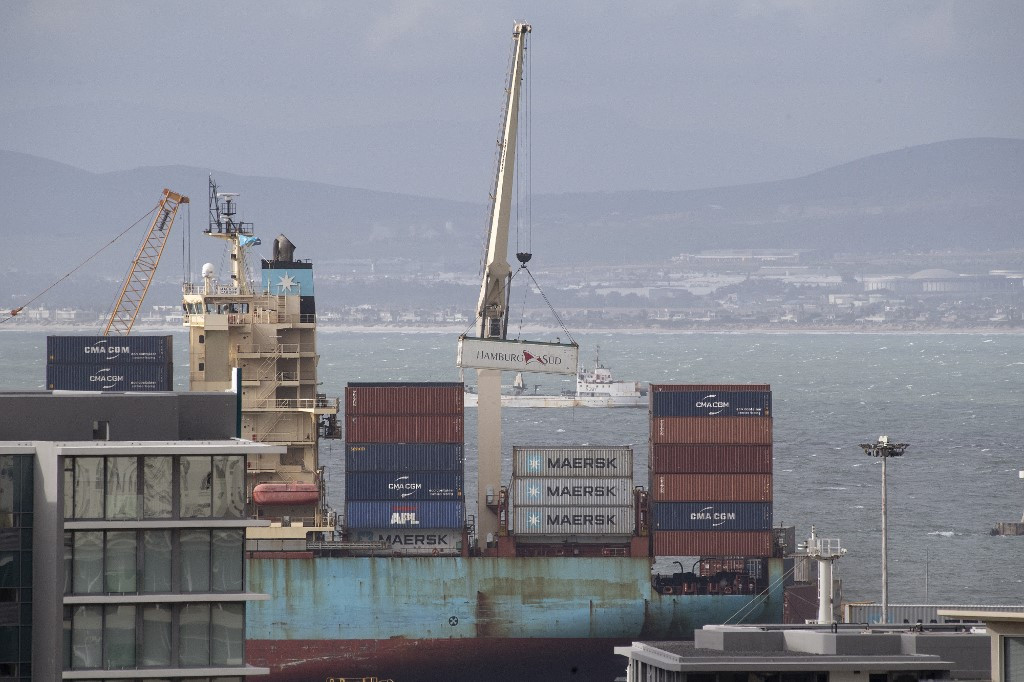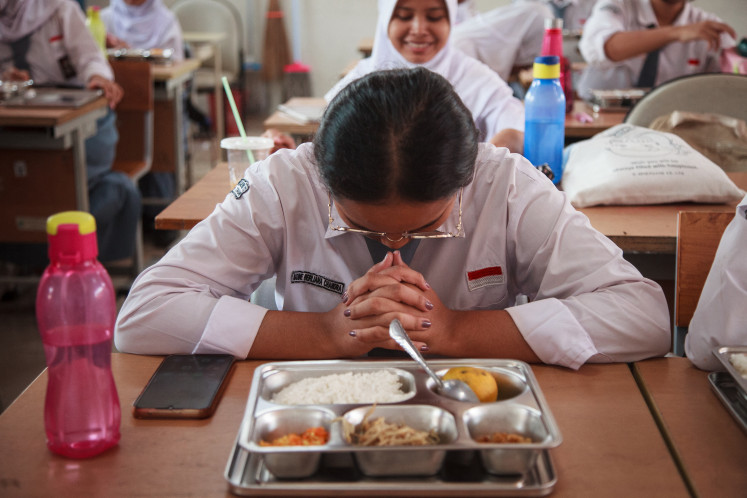Popular Reads
Top Results
Can't find what you're looking for?
View all search resultsPopular Reads
Top Results
Can't find what you're looking for?
View all search resultsSupply crisis spurs South Africa retailers to end Asia reliance
Change text size
Gift Premium Articles
to Anyone
S
piraling shipping costs and COVID-19 supply chain disruptions are accelerating a shift by South African retailers to end their heavy reliance on Asia and move to source products locally.
More than 50 percent of South Africa's clothing textiles, shoes, and leather products are imported, mostly from China, putting Africa's leading economy and its retailers at the mercy of forces beyond their control such as Chinese power shortages.
While the government launched a program in 2019 offering tax incentives to source goods locally, the recent spate of problems arising out of Asia has added urgency to what had been a slow shift, four top retailers in South Africa told Reuters.
"Most furniture in South Africa is currently imported, we are looking at various options to manufacture more here, particularly at the moment when shipping costs are up 400 percent. So it's even more of a reason if you needed one," TFG Chief Executive Anthony Thunström said in an interview.
TFG, which sources 72 percent of its clothes locally, said earlier this month it wants to locally manufacture 30 million pieces a year within four years, up from 11.5 million currently, and is adding furniture and jewelry to its growing local list.
Thunström said a lot of TFG's jewelry is already made in South Africa, but he wants to further increase local sourcing.
The owner of British women's wear brands Hobbs and Whistles and South Africa's @Home homeware brand wants these products to be manufactured on a quick turnaround basis to improve lead times and be competitive against global chains such as Zara, owned by Inditex and Swedish rival H&M.
TFG said on Nov.11 it will spend a further 575 million rand ($37 million) over the next three to five years to build local manufacturing capability.
South African retailers are not alone in looking local as constraints expose the vulnerability of globe-spanning supply chains and low-cost manufacturing hubs which have led to an over-dependence on imports, particularly from Asia.
Italy's Benetton and Hugo Boss, have already indicated they are sourcing clothes closer to home.
Norman Drieselmann, CEO of South Africa's Retailability, which owns the Edgars department store chain, said that China's power cuts have added a two-week delay to clothing on top of four weeks due to COVID, ahead of the critical festive season.
Woolworths told Reuters it expects the power cuts will impact its orders for March next year. The retailer, which sources about 30 percent of its fashion, beauty and home products from China, said it is making arrangements to buy more locally.
Retailers who spoke to Reuters did not share potentially competitive information about who would be producing goods for them in South Africa or exactly where in the country.
But budget clothing and electronics retailer Pepkor did say it wants to work with existing and strategic suppliers to manufacture easy to make clothing like t-shirts and shorts and provide financial capital to buy machinery.
"We've now identified some vendors that we want to work with, now the next thing is to develop the further capacity for them," Pepkor CEO Leon Lourens told Reuters.
However, South Africa will not provide all the answers.
Industry has suffered in a country itself long blighted by power shortages and prone in some sectors to labor disputes, while raw materials such as fabrics are sourced by South African suppliers from Asia.
Retailability's Drieselmann said that while it is looking to grow its local vendor base by placing more orders from local manufacturers instead of abroad, it is also shifting sourcing from China to other existing offshore suppliers.
The company has "started to engage more actively with India as an alternative, particularly from a fabric sourcing perspective," Drieselmann added.











